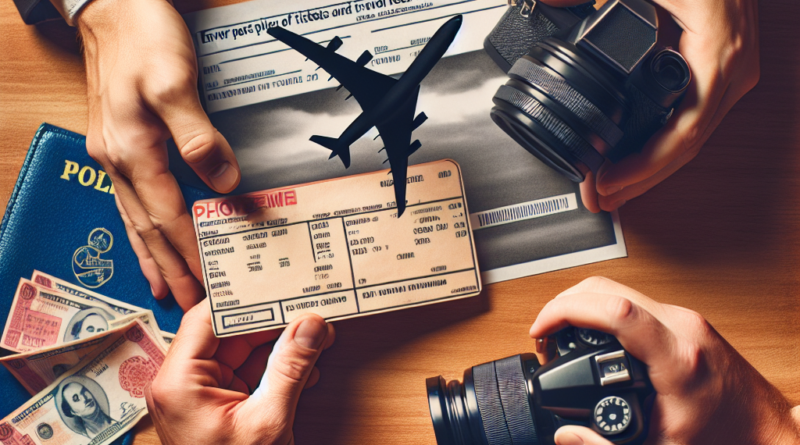The Risks of Sharing Travel Tickets and Reservations on Social Media
Why Sharing Travel Tickets and Bookings on Social Media Can Be Dangerous
It’s crucial to be extremely careful when it comes to sharing personal data online.
While most people are aware of this, many still believe they are taking all necessary precautions to protect their privacy, when in reality, they may not be.
One of the actions that should never be taken is posting photos of tickets and travel bookings on social media, yet this dangerous practice continues to be underestimated, leading to disastrous consequences for travelers and their families.
The Risks of Sharing Tickets and Bookings
Sharing photos of tickets and bookings online poses numerous risks, many of which people tend to believe are remote.
It’s often overlooked that even an ordinary person, who is not famous and has average finances, can become a target for scammers and identity thieves.
Exploiting the carelessness of everyday individuals, who believe they are not attractive targets, is how some individuals manage to profit at the expense of others.
There are many real-life stories that illustrate the unforeseen consequences of this common and seemingly harmless action.
For example, a recent incident involving a family from Kentucky serves as a stark warning against sharing travel bookings on social media.
The family had planned a year-long vacation and booked a $15,000 cruise, with the majority of the cost allocated to the cabin and around $2,000 for additional services like excursions.
The mother, excited about the upcoming trip with her husband and children, shared a photo of the booking on Facebook without initially noticing anything amiss.
Just 48 hours before departure, she discovered that her booking had been cancelled.
Someone had used the information from the booking to modify and ultimately cancel it, presumably in an attempt to fraudulently obtain a refund.
While the travel company offered a form of compensation amounting to $10,000, the family was left dissatisfied.
The company also issued a reminder, without directly referencing this case, about the importance of not sharing booking details.
Learn from Past Mistakes
This unfortunate situation is one that many reckless travelers have experienced, often resulting in significant financial losses and inconveniences.
To better understand the gravity of this risk, it’s worth revisiting a unique and widely publicized case from 2020 involving former Australian Minister Tony Abbott sharing an airline ticket on social media.
An ethical hacker swiftly uncovered his private data, including phone and passport numbers.
Fortunately, the hacker had good intentions: to alert the individual and authorities to the dangers of these behaviors.
Particular attention should be paid to QR codes and alphanumeric codes that identify bookings, as they often link to personal data beyond what is visible on the ticket, boarding pass, or reservation.
This exposes individuals to identity theft and scams, which can manifest in various ways, such as fake communications from travel companies to obtain payment information.
It’s common for scammers to alter or cancel trips, as highlighted by the American family’s experience, but the breaches can take many forms.
Additionally, more “traditional” methods like home burglaries are facilitated when individuals share their travel schedules on social media.
Protect Yourself
Extreme caution is essential.
If sharing upcoming trips cannot be avoided, personal data should be concealed.
Simply coloring over the image using sharing apps is insufficient, as the mask can be easily removed.
It’s better to rely on tangible tools readily available.
This explains why there are photos of airplane tickets placed inside a book or passport circulating online, creating an aesthetically pleasing effect.
Likewise, ensure that printed tickets and bookings are not misplaced and are properly disposed of to mitigate risks.
Remember, safeguarding your personal information is pivotal in an era where digital privacy is frequently compromised.




